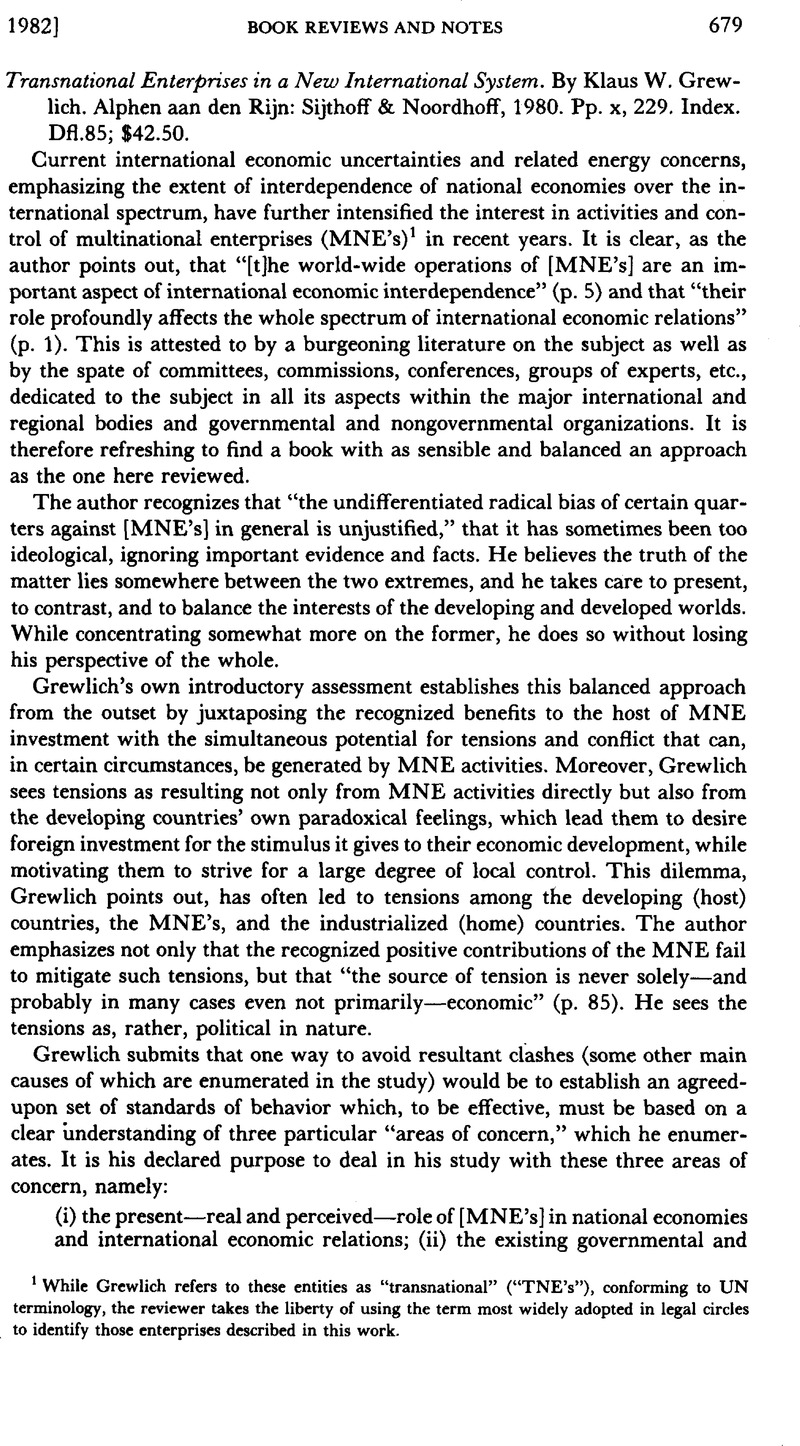No CrossRef data available.
Article contents
Transnational Enterprises in a New International System. By Klaus W. Grewlich. Alphen aan den Rijn: Sijthoff & Noordhoff, 1980. Pp. x, 229. Index. Dfl.85; $42.50.
Published online by Cambridge University Press: 27 February 2017
Abstract

- Type
- Book Reviews and Notes
- Information
- Copyright
- Copyright © American Society of International Law 1982
References
1 While Grewlich refers to these entities as “transnational” (“TNE’s”), conforming to UN terminology, the reviewer takes the liberty of using the term most widely adopted in legal circles to identify those enterprises described in this work.
2 Some legally oriented discussion is provided by the author’s well–formulated and cogent discussion of the legal aspects of the instruments postulating a new international economic order in ch. 6, but even this discussion inevitably remains in the realm of “soft law.”
3 There is one parenthetical allusion to the Badger case on p. 116.
4 E.g.: (a) The author’s statement that “control is usually determined on the basis of ownership” (p. 26), citing 25% or more of the voting stock as a basic criterion of controlling ownership, would be considered by many as outdated, (b) If universal agreement on any of the currently formulated or in-draft proposals for international codes or guidelines has still not been achieved, it is difficult to conceive that a new set of standards will find a more positive response or elicit the desired global consensus, (c) It may regrettably prove overly optimistic to think that the U.S. Foreign Corrupt Practices Act of 1977 will, after “short-term disadvantages,” in the long run “help to ensure the survival of liberalism by renouncing the unacceptable face of capitalism and by enhancing the integrity and credibility of the liberal Western economic system” (p. 180), since the activities forbidden under this Act are, in many instances, initiated not by the MNE’s, but rather by the host governments, some of whom see this as a normal way of doing business, (d) The study repeatedly emphasizes (e.g., pp. 153, 174, and 204) that it is the role and even the moral duty of the West to take the initiative in developing the “new international economic system,” since it was the West that created the “old” system. It could be argued that this ignores the fact that it is precisely owing to the developing world’s disillusionment with the “old” system that these countries have launched their own initiative to create the “new order.” They are not likely to trust the West to develop a “new order” favorable to their interests.


